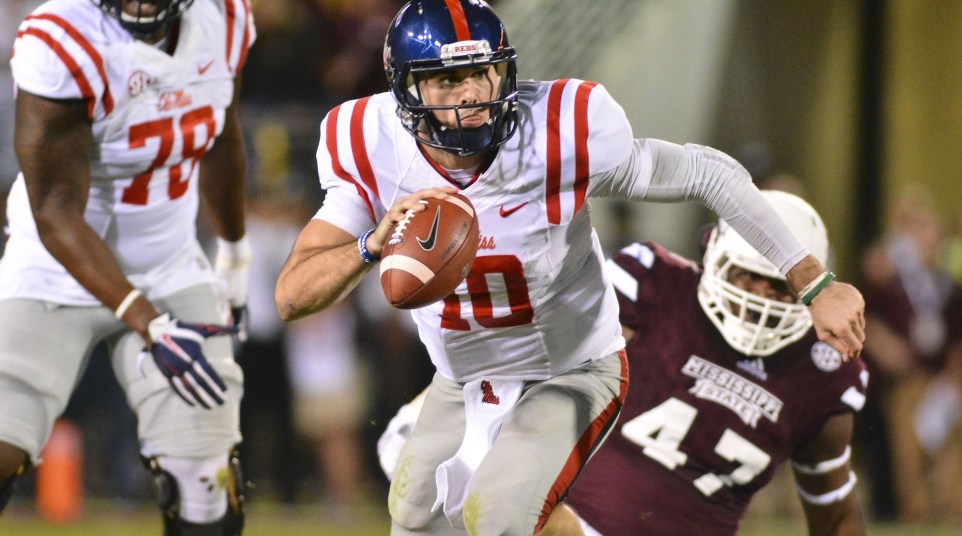
Which SEC teams have been helped or hurt by transfers?
Transfers are a big part of college football. For various reasons, players don’t always end their careers where they start them.
Some SEC teams have done good job of recruiting JUCO standouts, while other schools have lost players who made impacts somewhere else.
Let’s take a look at the conference schools whose incoming transfers worked out and those whose departures hurt.
HELPED
Auburn: The transfer route certainly boosted the Tigers in recent years, and 2016 should be no exception. Jovon Robinson, who came to the Plains from Georgia Military College, appears to have the inside track for Auburn’s No. 1 running back spot. Austin Golson, who began his career at Ole Miss, returns as the Tigers’ starting center.
Those additions could extend Auburn’s recent tradition of success with transfers, particularly JUCO ones. Cam Newton transferred twice — initially from Florida — before arriving at Auburn and leading the Tigers to the 2010 national title. QB Nick Marshall took a route similar to Newton’s, successfully running Gus Malzahn’s offense for two years after stops at Georgia and junior college. Cameron Artis-Payne, and Duke Williams, two of the leaders of the 2014 Tigers, both played for JUCOs before arriving on the Plains.
Defensive back Blake Countess, a transfer from Michigan, had a fine senior season for the Tigers in 2015, finishing second on the team in pass breakups (11) and INTs (2).
Ole Miss: The Rebels have scored big-time in the junior-college ranks with their past two QBs. Chad Kelly and Bo Wallace came from East Mississippi Community College and had success in Oxford. On the flip side, DeVante Kincaide — one of Kelly’s backups in 2015, is transferring to be closer to home in Texas.
Hugh Freeze has also brought in Lavon Hooks and Jeremy Liggins (both from Northeast Mississippi CC) and Tee Shepard (Holmes CC) in recent years. Ole Miss also signed touted players Tony Bridges (Mississippi Gulf Coast CC) and D.J. Jones (East Mississippi CC) to help bolster its defense.
HURT
Florida: There’s no guarantee that Newton would have succeeded in Gainesville, but, for various reason, the Gators haven’t filled an elite QB since his departure. In recent years, former Florida signal callers Tyler Murphy (Boston College) and Jacoby Brissett (Louisville) have landed starting jobs in the ACC. All Brissett did was pass for 43 TDs and just 11 INTs over the final two seasons for the Wolfpack.
Jeff Driskel, who lost Florida’s starting QB job to Treon Harris, transferred to Louisiana Tech, where he was named Conference USA Newcomer of the Year after throwing for 4,033 yards, 27 TDs and just 8 picks in 2015.
Players at other positions have left as well, but the quarterback spot has been a revolving door. Last year’s starter Will Grier, who is still serving an NCAA suspension for testing positive for a performance-enhancing substance, is transferring, becoming the sixth QB to do so from Florida in the past three years, following Brissett, Murphy, Driskel, Max Staver and Sklyer Mornhinweg.
Coincidentally, Alabama and Oregon State transfer Luke Del Rio appears to be the front-runner for the Gators’ starting QB job in 2016, according to the Miami Herald. He should get competition from Purdue transfer Austin Appleby, who was the Boilermakers’ starter over parts of the past two seasons.
Georgia: Before starring at Auburn, Marshall — who started his career as a defensive back — and two other Georgia teammates were dismissed from the squad for violating team rules. Josh Harvey-Clemons (Louisville), Isaiah Crowell (Alabama State), Ty Flournoy-Smith (Georgia Military College to Alabama), Zach Mettenberger (Butler Community College to LSU) and several other former Bulldogs who were also dismissed landed at other schools.
Who knows where Mark Richt and Georgia would be today had the Bulldogs been able to retain that group of dismissed players?
Faton Bauta, who started one game at QB for the Bulldogs in 2015, is transferring to Colorado State.
Texas A&M: The loss of former starting QBs Kyle Allen (Houston) and Kyler Murray (Oklahoma) will certainly hurt, but the addition of former Sooner signal-caller Trevor Knight could offset those departures.
WIN SOME, LOSE SOME
Alabama: Jacob Coker, who couldn’t beat out Jameis Winston at Florida State, finally became Alabama’s starting QB in 2015 and rode that role all the way to a national championship. Oregon State transfer Richard Mullaney helped him win it with his 38 catches for 390 yards and 5 TDs in his one season in Tuscaloosa.
Those two are examples of players who thrived after coming to Alabama, but there have been others who have succeeded after leaving.
Dee Hart, who saw limited action for the Tide in 2012-13, rejoined former Alabama offensive coordinator Jim McElwain in Colorado State the following year and finished with 1,275 yards and 16 TDs on just 194 carries.
Bama and Hutchinson CC transfer Alvin Kamara just finished a solid first season with Tennessee, finishing with 698 yards and 7 scores on 107 attempts. Plus, Phillip Ely, who appeared in parts of 8 games over two seasons as Bama’s backup QB, thrived as Toledo’s starter in 2015.
Other recent transfers who have worked out for the Crimson Tide include Terrence Cody, who helped Alabama win the 2009 national title after two seasons at Mississippi Gulf Coast Community College. Jesse Williams (Arizona Western) and Quinton Dial (East Mississippi CC) won back-to-back championships with the Tide in 2011-12. Jarran Reed and D.J. Pettway, two more East Mississippi CC alums, joined Coker and Mullaney as transfers who capped their college careers with a national championship.
